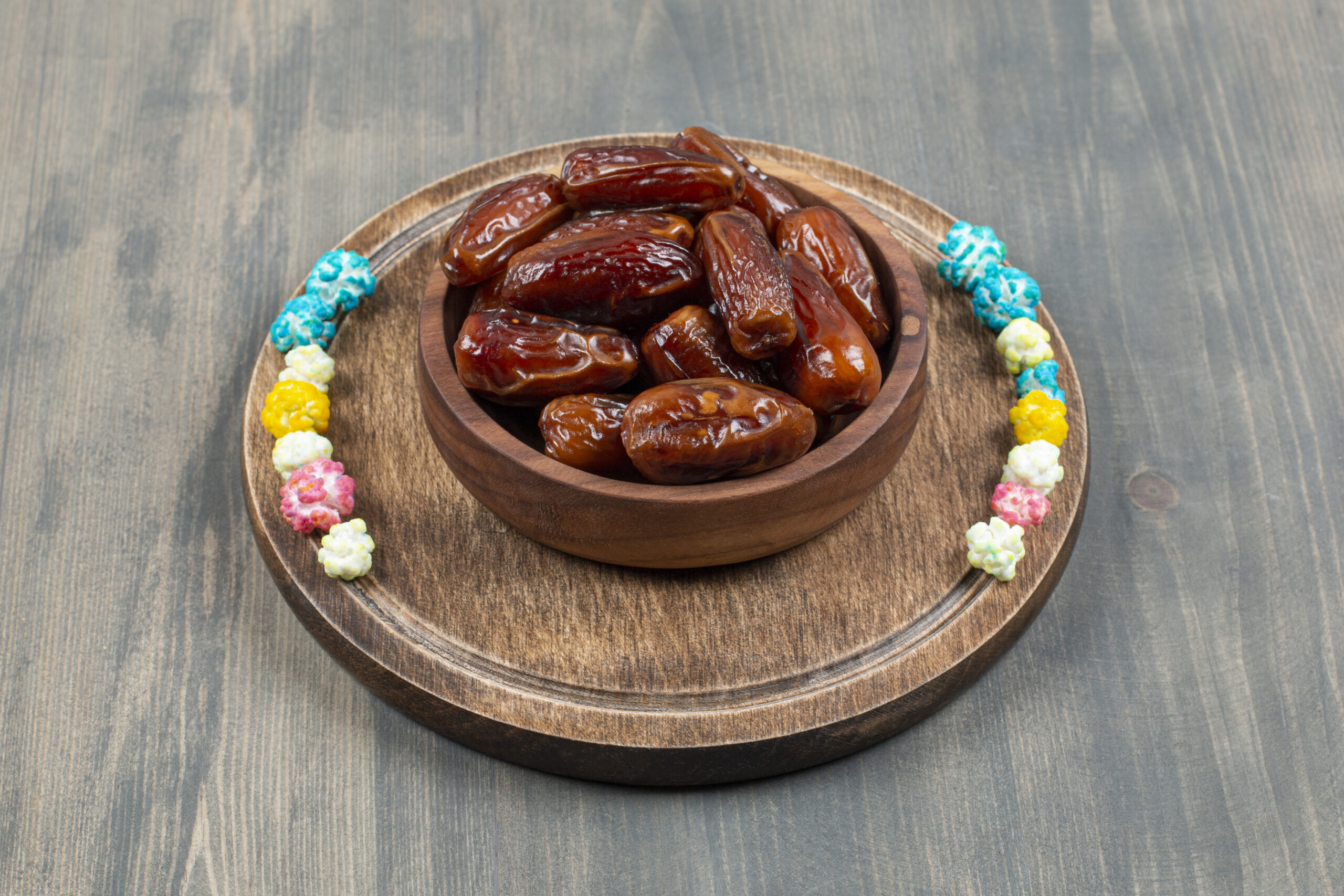Yellow Barhi Dates—small, golden, and irresistibly crunchy—are much more than just a sweet, exotic fruit. Often mistaken for just another variety of dates, these unique gems pack a surprising nutritional punch that makes them one of nature’s healthiest and most energizing treats. In this article, we’ll explore the complete nutrient profile of Yellow Barhi Dates, their health benefits, and how they stack up against other types of dates.
Whether you’re a health enthusiast, a curious foodie, or someone exploring natural alternatives to processed snacks, this guide will give you all the details you need.
What Are Yellow Barhi Dates?
Yellow Barhi Dates, also known as Khalal Barhi Dates, are the fresh, unripe version of the Barhi date variety. Originating from the Middle East and now cultivated in parts of the U.S. (like California’s Coachella Valley), these dates are harvested before they fully ripen.
Unlike the dark, chewy dried dates most people are familiar with, Yellow Barhi Dates are crisp, apple-like, and mildly astringent with a sweet, caramel-like aftertaste. They’re typically enjoyed during the short harvesting season in late summer and early fall when they are available in their freshest state.
Key Nutrients Found in Yellow Barhi Dates
Natural Sugars and Carbohydrates
Yellow Barhi Dates are an instant source of natural energy. They contain naturally occurring sugars like glucose, fructose, and sucrose, which make up the bulk of their carbohydrate content.
- Carbohydrates per 100g: ~25–30g
- Calories per 100g: ~120–140 kcal
While these numbers are lower than fully ripened or dried dates, they still provide a steady energy release—perfect for athletes or as a pre-workout snack.
Why Natural Sugars Matter
Natural sugars in Yellow Barhi Dates are unprocessed, making them healthier alternatives to refined sugars. They don’t cause sharp spikes in blood sugar when consumed in moderation and are often paired with fiber, which slows glucose absorption.
Dietary Fiber
Another key nutrient in Yellow Barhi Dates is dietary fiber. Even in their firm, crunchy state, they contain a good amount of insoluble fiber that supports gut health.
- Fiber per 100g: ~2–3g
Fiber helps regulate bowel movements, supports weight management by promoting satiety, and contributes to a healthy digestive tract. For people who suffer from irregular digestion, adding Yellow Barhi Dates to their diet can offer gentle, natural relief.
Essential Vitamins
Vitamin A
Yellow Barhi Dates contain small amounts of Vitamin A, essential for:
- Eye health
- Skin regeneration
- Immune defense
This vitamin is fat-soluble and helps maintain mucous membranes, which form the first line of defense against infections.
B-Complex Vitamins
Barhi dates also offer a mix of B vitamins, including:
- B1 (Thiamine): Helps convert carbohydrates into energy
- B2 (Riboflavin): Supports red blood cell production
- B6 (Pyridoxine): Crucial for brain development and immune health
These micronutrients are important for energy metabolism and overall neurological function.
Vitamin C
Though present in modest amounts, Vitamin C adds antioxidant value. It aids in:
- Collagen formation
- Absorption of iron
- Strengthening immune response
Since Yellow Barhi Dates are consumed fresh, their vitamin C content remains more intact compared to dried dates.
Important Minerals
Potassium
Yellow Barhi Dates are an excellent source of potassium, a mineral crucial for:
- Heart rhythm regulation
- Muscle contractions
- Electrolyte balance
With roughly 650–700 mg of potassium per 100g, these dates provide more potassium than a medium-sized banana.
Magnesium
Magnesium supports hundreds of enzyme systems and is essential for:
- Bone density
- Blood sugar regulation
- Nerve function
Barhi Dates offer about 40–50 mg of magnesium per 100g, which helps reduce inflammation and promotes relaxation.
Iron
Barhi Dates offer non-heme iron, which plays a vital role in:
- Red blood cell production
- Oxygen transport
- Preventing anemia
Combined with Vitamin C, the absorption of iron from Yellow Barhi Dates becomes more efficient, making them a great addition for those with iron deficiencies.
Antioxidants and Phytochemicals
Although Yellow Barhi Dates are less mature than their dried counterparts, they still contain beneficial antioxidants such as:
- Flavonoids: Anti-inflammatory properties
- Carotenoids: Good for eye health
- Phenolic compounds: Help fight oxidative stress
These compounds protect cells from damage and contribute to long-term disease prevention, especially when consumed regularly as part of a balanced diet.
Health Benefits Backed by Nutrient Profile
Based on their composition, Yellow Barhi Dates offer several science-backed health benefits:
Natural Energy Booster
Thanks to their simple sugars and carbohydrate content, they serve as a quick energy source. This makes them perfect for:
- Athletes needing a pre-exercise snack
- Students and professionals needing a mental boost
- Anyone experiencing afternoon fatigue
Digestive Health Support
The fiber in Yellow Barhi Dates improves gut motility and helps maintain a balanced microbiome. They may also help prevent:
- Constipation
- Bloating
- Acid reflux
Cardiovascular Wellness
Potassium and magnesium in these dates play roles in lowering blood pressure, reducing stroke risk, and improving heart function.
Anemia Prevention
The iron and vitamin C duo helps boost hemoglobin levels naturally. This makes Yellow Barhi Dates an ideal fruit for women, teens, and individuals with iron-deficiency anemia.
Nutrient Comparison: Yellow Barhi vs Dried Dates
| Nutrient | Yellow Barhi Dates | Dried Barhi Dates |
|---|---|---|
| Calories (per 100g) | ~130 kcal | ~280 kcal |
| Sugar | ~25g | ~65g |
| Fiber | ~3g | ~7g |
| Vitamin C | Higher | Minimal |
| Antioxidants | Mild | Higher (concentrated) |
| Water Content | High (~70%) | Low (~10%) |
Conclusion: Yellow Barhi Dates are lower in sugar and calories, but higher in moisture and fresher vitamins, making them better suited for low-sugar diets and hydration support.
How to Incorporate Yellow Barhi Dates into Your Diet
Looking to add Yellow Barhi Dates into your daily meals? Here are some delicious and healthy ideas:
Snack on Them Fresh
Just wash and eat! Their apple-like crunch and mild sweetness make them a great on-the-go snack.
Pair with Nut Butters
Split open a date and fill it with almond or peanut butter for a protein-rich combo.
Add to Smoothies
Use Yellow Barhi Dates as a natural sweetener in green smoothies or protein shakes.
Toss into Salads
Chopped dates in a kale or spinach salad add texture, fiber, and a subtle sweetness.
Bake or Roast
Roasted Yellow Barhi Dates wrapped in a thin slice of turkey or cheese can make a gourmet appetizer.
Who Should Be Cautious?
While Yellow Barhi Dates are a superfruit, they may not suit everyone:
- Diabetics: Should monitor portion size due to natural sugars
- People with IBS: Fiber may trigger symptoms in sensitive individuals
- Allergy-sensitive individuals: Although rare, some people may react to date palm fruit
Always consult a health professional if unsure.
Conclusion
Yellow Barhi Dates are more than just a seasonal delicacy—they are a powerhouse of natural nutrition. From their energizing sugars and digestion-boosting fiber to their essential vitamins and minerals, they deserve a spot in your healthy food list.
Not only do they support immunity, heart health, and energy levels, but they also offer a low-sugar, low-calorie alternative to processed snacks. If you haven’t yet tried them, this is your sign to explore Yellow Barhi Dates and enjoy nature’s sweet gift in its freshest form.



